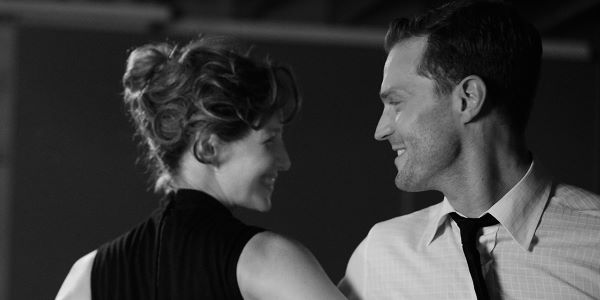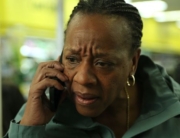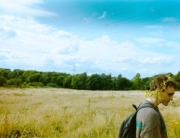One might think that a film named after the capital of Northern Ireland and set in 1969 just as the Troubles were heating up wouldn’t give you the warm and fuzzies. Yet Kenneth Branagh’s semiautobiographical film does, and it’s a charmer. (He has referred to it as “auto-fiction.”)
Branagh has centered his screenplay on a nominally Protestant working-class family living in a neighborhood of mostly Protestants with some Catholic families as neighbors, not on politics or the country’s religious divide. He doesn’t try to take on too much at once. Regarding the question of whether the province of Ulster should unify with the Republic of Ireland or remain part of the of the United Kingdom is not on his agenda at all. Instead, he looks back not with anger but with affection for his birthplace and childhood.
Children play ball in the streets or pretend to slay dragons while neighbors hang out on the stoop in the August sun—the weather is notoriously changeable—until the peace of the opening scene shatters as Unionist hooligans, loyal to British rule, storm the street with Molotov cocktails, targeting and attacking Catholic households. Nine-year-old towhead Buddy (Jude Hall, a stand-in for Branagh) is pulled out by Ma, who drags him and his brother underneath the kitchen table as a car explodes in the street just feet away. The opening salvo lays down the conflict clearly: the chaos outside versus the warmth of family.
Branagh defangs the Protestant/Catholic, Republican/loyalist divide by making the Protestant hooligans the enemy, the self-imposed enforcers of the North Belfast neighborhood who want to keep the Catholics out while shaking down the residence for the so-called protection, but Buddy’s parents are in a no man’s land. They are neutral, two blank slates above the fray. Ma and Pa don’t give a hoot what religion their neighbors are, and Pa emphatically steps away from joining the paramilitary group, thus becoming a target himself. Only crusty and gruff Granny (Judi Dench) drags Buddy and his older brother, Will (Lewis McAskie), to church, where they are assaulted by the thunderous bellowing of the overheated minister, whose harsh sermon could have come out of the mouth of John Knox in the 16th century.
If Branagh has in fact based the on-screen parents on his own, then he is a loving son. As portrayed by Caitríona Balfe and Jamie Dornan, Ma and Pa are the most handsome couple on the block. Even though money is tight because the family owes hundreds of pounds in back taxes, Ma is the fitting image of a fashionable young woman, and both of them are hip enough to cut the rug to “Everlasting Love.” Speaking of music, the city’s favorite son, Van Morrison, has a wall-to-wall song selection to keep the mood buoyant, as do the moments when Pa treats the family to outings at the pictures, where movies like One Million Years B.C. and Chitty Chitty Bang Bang splash dazzling color on the screen. (Though you can blame the latter film’s title theme song as the earworm that won’t go away.)
Branagh has created a scenario that would be very difficult for anyone to find offence, as long as viewers keep in mind it’s told from a specific perspective. He keeps it simple. As the violence increases and unemployment rises, the central conflict becomes: Should the family stay or go to England, where Pa, a joiner, has found steady employment? And in a touching stroke, he gives the last word, and close-up, to Dench’s Granny.
Still, the film may possibly have an underlying political message. From its beginning moments, the editing presents a contrast, opening with color footage of the shipping docks where the Titanic was constructed and the grand architecture of this port city, before cutting to the dreary black-and-white past. (The cinematography is by Haris Zambarloukos.) Branagh gently and indirectly warns of what will happen if the tensions of the past return, that the color could fade after Brexit, in which the question of a hard border between the north and the south of Ireland has flared up as a political issue between the UK and the European Union.







Leave A Comment